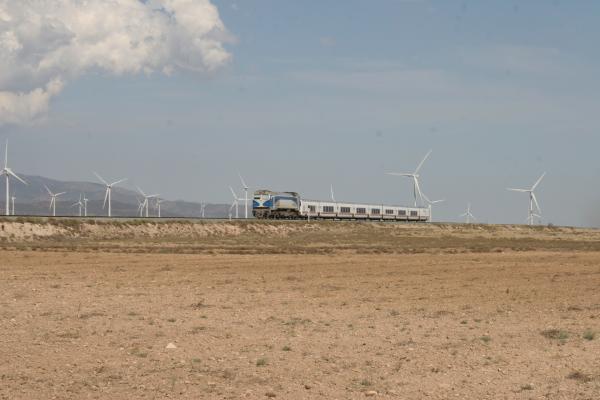
An important EU policy objective is to promote environmentally friendly means of transport, interoperability and intermodality.
The Warsaw Forum will provide a platform for exchange between those directly involved in the development of energy and transport networks in Central and Eastern Europe. European Parliament President Jerzy Buzek and EIB President Philippe Maystadt will be the keynote speakers. The Forum will provide an opportunity to discuss key issues at the political level and share information on financing needs and opportunities.
The security of energy supply is essential to sustaining economic development. Many Central and Eastern European countries face challenges in the energy sector, such as new capacity and modernisation needs, technological deployment, market liberalisation, fuel diversification and increasing energy prices to name but a few. With the region's energy mix being mostly based on fossil fuels and in view of increasing energy demand, it is crucial to integrate renewable energy and energy efficient projects into national and regional energy policies.
High-efficiency energy supply
In Latvia, the EIB has supported the upgrading of Latvenergo's combined heat and power plants, as well as its transmission and distribution networks. The use of state-of-the-art technologies will ensure the highest energy-conversion efficiency available for thermal power plants today with the lowest possible environmental impact. Developing new capacities will also help the country to reduce its dependency on imported electricity and improve security of supply.
Moving towards sustainable and clean energy
The EIB is supporting the financing of the Margonin Windfarm, the largest in Poland so far with 120 MW and the first of a number of projects that the Bank is pursuing. It will help Poland reach its target of supplying 15% of its energy consumption from renewable sources by 2020. Wind power forms an integral part of this strategy and is expected to see continued growth in Poland.
An important EU policy objective is to promote environmentally friendly means of transport, interoperability and intermodality. Reliable infrastructure networks facilitate economic growth, regional competitiveness and territorial cohesion. However, in practice, budget constraints force countries to set priorities and balance out economically stronger areas and the weaker regions. Setting up the right infrastructure can help reduce the economic gap and increase overall competitiveness.
Green transport firmly on track
The Letohrad-Lichkov railway line connects the Polish city of Wroclaw with the north-eastern part of the Pardubice region in the Czech Republic. The EIB is helping to finance the rehabilitation and electrification of 23.7 km-long section of the line. As part of a larger framework loan of up to more than EUR 1bn, the EIB's co-financing complements EU grants provided under the Structural and Cohesion Funds for upgrading the Czech Republic's transport systems.